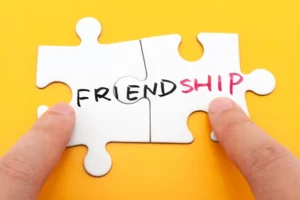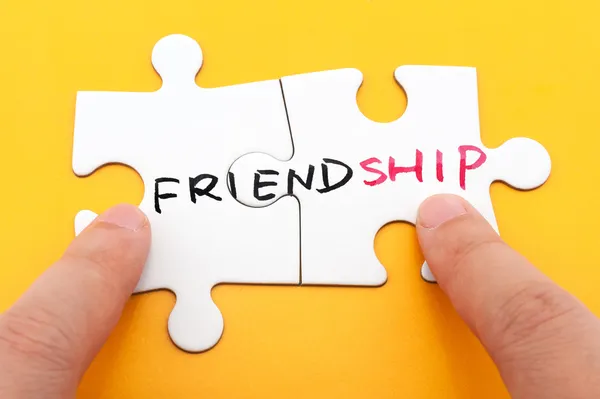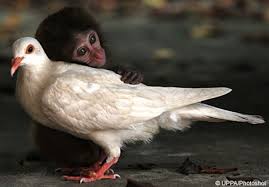
I wasn’t going to write about this yet, but the timing couldn’t be more perfect. A friend just shared their experience of unrequited friendship on the very day I decided to write my first blog post. What are the odds? So here we go. Have you ever experienced the heartache of an unrequited friendship? It’s an incredibly unique type of pain that runs deep within us as we come to the realization that the connection we crave and perhaps work hard to foster may never come to fruition. Whether you have been on the receiving end of a one-sided friendship or have struggled to reciprocate someone else’s friendship, this is dedicated to you. Chances are that you’ve experienced, or will encounter, both scenarios at some point in your life.
Have you ever had a `friend` who had the power to make you feel both elated and dejected simultaneously? They possess the ability to be kind and engaging when you reach out to them but seem to forget you exist during periods of time when you don’t initiate contact. No matter how much time passes, they never proactively reach out to you, except when they need something from you, of course. Remembering things about you isn’t their strong suit—dates, your favourite things, even your name may slip their mind. But don’t worry, it’s not personal. They just have selective forgetfulness, as they oddly remember other details accurately.
You find yourself making excuses for their behaviour and focusing on the positive moments—the times when they’ve shown kindness towards you or when you did some fun activities together. You make a conscious effort to be kind and treat them the way you want to be treated, hoping they will take the cue and reciprocate. However, they disappoint you. Are they narcissistic? Not quite. They have other close friends whom they spend time with, just not you. Slowly, you come to the uncomfortable realization that this person is merely being polite to fulfil your desperate need for their companionship, but they aren’t interested in cultivating a friendship with you. Determined to move on, you make a vow to yourself not to contact them anymore. Yet, the moment they give you a hint of attention, you find yourself once again like a puppy, wagging your tail, eager to please their every demand, only to be forgotten once again, leaving you to confront your shameful realization once more.
You`re confronted with a classic case of unrequited friendship. Unrequited love takes the spotlight in countless poems, stories, movies, and artwork—and rightfully so. It’s a beautifully tragic concept that captivates our emotions and, most importantly, is relatable. But what about unrequited friendship? Who can you confide in, and how do you explain the dynamic of being “in friendship” with someone who doesn’t feel the same towards you? If unrequited love is already disheartening and embarrassing, unrequited friendship is a thousand times worse. Just how flawed and undeserving must one be to be rejected as a friend?
What should you do? Frankly, I’m not entirely sure, but let me tell you this: you are absolutely deserving. Like most situations of this nature, it is crucial to acknowledge and be mindful of the circumstances. Self-reflection will assist you in untangling the factors that have led you to this position. Unrequited friendship thrives on your longing for a close companion, particularly when you are new or trying to fill a void caused by a loss. It is no surprise that the most common victims of unrequited friendship are those who are new to a group or community. Your desire for a friend may blind you to their obvious signs of disinterest in you. It is important to recognize that people have the right to choose their friends, just as they choose their romantic partners. This becomes even more relevant as we grow older, have more responsibilities, and have less time to invest in friendships that we do not genuinely desire. You must become comfortable with the idea of having acquaintances in your life. These are people who are familiar with you, perhaps spend some routine time with you, and wish you well, but are not particularly interested in getting to know you better or spending more time with you. The more you force a one-sided friendship, the less likely you are to encounter a genuine friend with whom you can form a mutually satisfying relationship.
So, the next time you attempt to form a friendship with someone who isn’t reciprocating your positive energy, there’s no need to worry or try to force a connection that isn’t naturally developing. As I advised my friend today, it’s important to respect yourself and move on.



